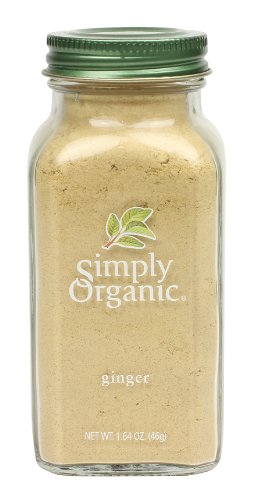 You’ve heard of trusting your gut? It’s good advice! So how do you know when your gut is talking to you? Your body is sending you messages all the time. We find ourselves trying to reason them, intellectualize them, or even ignore them. Instead, try to just act on them! What does your body feel like right now? Take an inventory. Do your joints hurt? How about your muscles? Do you have energy throughout the day? Are you listening to what it’s saying? I told you about my craving for chocolate was an ongoing thing. It’s not just because I love chocolate, it’s because my body is trying to talk to me, whether it’s because I am lacking something nutritional or emotional.
You’ve heard of trusting your gut? It’s good advice! So how do you know when your gut is talking to you? Your body is sending you messages all the time. We find ourselves trying to reason them, intellectualize them, or even ignore them. Instead, try to just act on them! What does your body feel like right now? Take an inventory. Do your joints hurt? How about your muscles? Do you have energy throughout the day? Are you listening to what it’s saying? I told you about my craving for chocolate was an ongoing thing. It’s not just because I love chocolate, it’s because my body is trying to talk to me, whether it’s because I am lacking something nutritional or emotional.
” If you want to see what your body will look like tomorrow, look at your thoughts today.” -Navajo saying
I’ve just started reading Dr. Judith Orloff’s Guide to Intuitive Healing: 5 Steps to Physical, Emotional, and Sexual Wellness, and I’m already crushing it. In it, Dr. Orloff describes how your body is a richly nuanced intuitive receiver — and how you must be aware of your body’s signals to completely heal.
So, what are some ways you can learn to listen to your body?
Eat when you’re hungry
Do you wake up hungry in the morning? Then eat. Not hungry first thing after you wake up? Then don’t eat. We are conditioned to eat at certain times of the day whether we are hungry or not. We should really follow what babies (and most kids) do. Have you noticed that a child will seem to never be hungry, then suddenly, they want to eat all day? They are totally in tune with their body. Eat if you’re truly hungry. Otherwise, wait until you are. Eating whenever you’re truly hungry means less stress, a better relationship with your body, and no more random restrictions on when you can and can’t eat. Once you actually work with your body (with good eating habits as well), then you’ll find that you’ll be on a regular eating schedule.
Stop eating when you’re satisfied—and before you’re stuffed
Have you ever done it? You know, it’s a special event and your eating the most wonderful meal-ever. You just want to finish all that food, even though you know you are full. We don’t need to eat until we’re on the verge of discomfort. Stop eating when you are satisfied. Plain and simple, right? You would think it would be easy, but sometimes, other issues may be going on as well. If someone is on a strict diet, they may have the mindset of being on constant state of deprivation. This can lead to over-eating since they fear that they will be hungry before their allowed time to eat again. But, if you follow the first suggestion of only eating when you are hungry, it should help you realize there’s no need to eat a ton of food all at once. Save the rest for when you feel hungry again.
Find out why are you eating
It’s important to remember that there’s a difference between eating for hunger and eating out of boredom or another emotion. I think we’ve all been there where we find ourselves reaching for the tub of Ben and Jerry’s ice cream after a bad day. Or, when you are bored and those potato chips look good even though you just ate lunch. That is eating out of emotion. A great way to find out if you are emotional eating is to food journal. Food journaling is a perfect way to figure out when you are eating for other reasons then hunger. I won’t take any clients that refuse to journal their food. It’s a great way to get clear about your eating. Once you’ve learned your emotional eating triggers, replace eating with some other solution to a given problem. Address your emotions and don’t turn to food as comfort. It may take a little patience, but once you get in the habit, it will come second natured. Bored? Go do something you enjoy. Lonely? Get together with old friends. Stressed? Try yoga or meditation to let go of the worrying.
Pay attention to how you feel after you eat
This is the most important reason for listening to your body. The next time you eat, pay attention to how you feel afterwards. Do you feel energized? Bloated? Gassy? If you feel any unpleasant changes, that’s your body screaming at you. If a given food makes you feel terrible, stop eating it. I follow the guidelines for The Elimination Diet (see my review here) to find out what food intolerances a person may have. Food journaling works for this step as well. Write down everything you eat during the day and how you felt afterwards and the next day as well. Try taking some common intolerances, like dairy, eggs, and gluten and see how your body feels without them in your diet.
Don’t worry, your body will let you know what it doesn’t like! I can say from personal experience that listening to my body through trial and error has helped me to figure out what I need to do for maintaining my health. After all, you can read as many books you want on diets and what’s best to eat, but what might work for one person might not work for another. Listening to what your body is telling you instead, will give you a greater over-all-health result. Just breathe, give it time, and watch what happens. Your body will thank you for finally paying attention to it and it will reward you back-I promise! ; )
*this post may contain affiliate links.
Want to get your organic food 30-50% cheaper? Check out Thrive Market!
Like Where Tess Lives? Come see all the pretty… Follow me on Instagram.


Leave a Reply